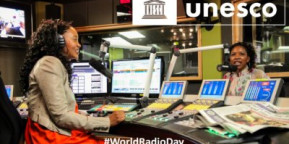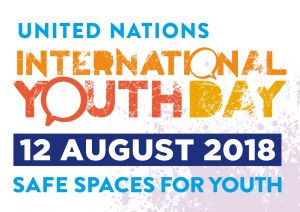 The theme for the 12th edition of the World Radio Day, to be celebrated on 13 February 2023, is « Radio and Peace« .
The theme for the 12th edition of the World Radio Day, to be celebrated on 13 February 2023, is « Radio and Peace« .
War, as an antonym to peace, signifies an armed conflict between countries or groups within a country, but may also translate into a conflict of media narratives. The narrative can increase tensions or maintain conditions for peace in a given context – for instance weigh in on the rough or smooth conduct of elections, the rejection or integration of returnees, the rise or tempering of nationalistic fervour, etc. In reporting and informing the general public, radio stations shape public opinion and frame a narrative that can influence domestic and international situations and decision-making processes.
Radio can indeed fuel conflict but in reality, professional radio moderates conflict and/or tensions, preventing their escalation or bringing about reconciliation and reconstruction talks. In contexts of distant or immediate tension, relevant programmes and independent news reporting provide the foundation for sustainable democracy and good governance by gathering evidence about what is happening, informing citizens about it in impartial and fact-based terms, explaining what is at stake and brokering dialogue among different groups in society.
“… since wars begin in the minds of men, it is in the minds of men that the defences of peace must be constructed.”
That is the reason why support to independent radio has to be viewed as an integral part of peace and stability. On World Radio Day 2023, UNESCO highlights independent radio as a pillar for conflict prevention and peacebuilding.
 The theme for International Youth Day 2018 is Safe Spaces for Youth.
The theme for International Youth Day 2018 is Safe Spaces for Youth. Mr. Vladimir Ivanovich Voronkov was
Mr. Vladimir Ivanovich Voronkov was  The first World Television Forum was staged by the United Nations in the mid ’90s, and it was out of this event that World Television Day was born. The forum brought together leading figures from the media industry to analyze the growing impact that TV had on decision-making and public opinion when it comes to issues of peace and security around the planet.
The first World Television Forum was staged by the United Nations in the mid ’90s, and it was out of this event that World Television Day was born. The forum brought together leading figures from the media industry to analyze the growing impact that TV had on decision-making and public opinion when it comes to issues of peace and security around the planet.